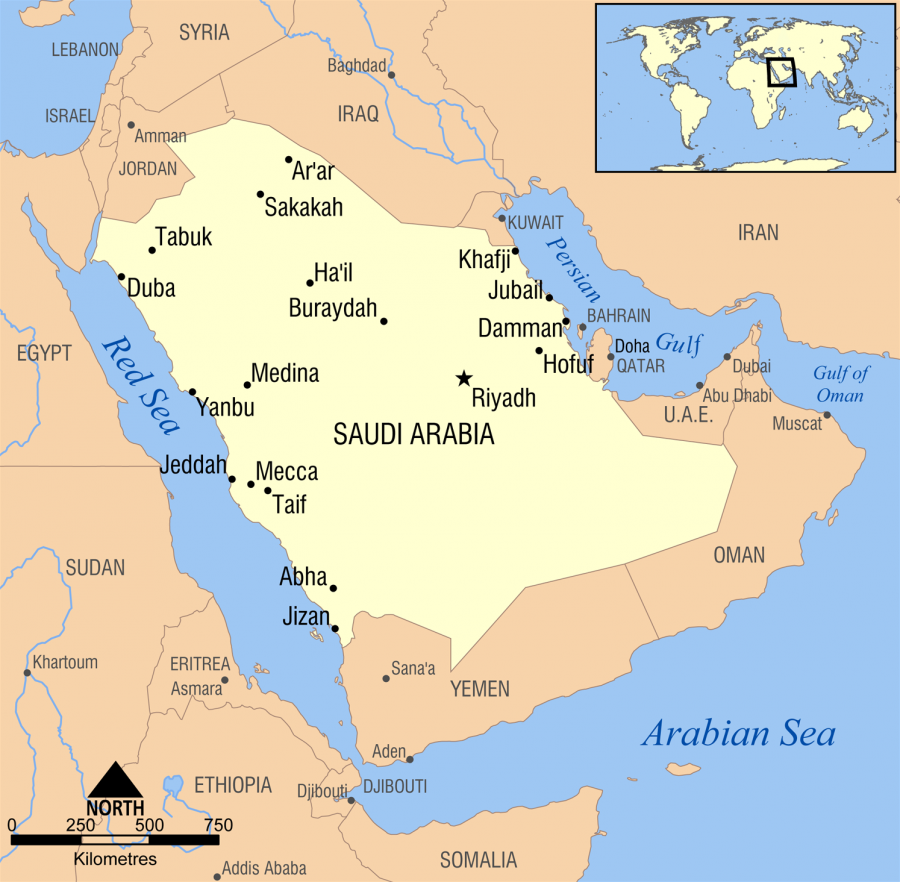Female activists face jail time for protests
September 18, 2018
Five female activists in Saudi Arabia have been arrested for protesting discrimination against the Shiite Muslim minority in a predominantly Sunni Muslim country. Moreover, one of the women is facing the penalty of execution. This activist, Israa al-Ghamgham, is considered the first Saudi female peaceful protester to be confronting capital punishment (The Guardian).
The state-sponsored bias these women were dissenting from that occurs against the Shiite religious group comprises Shia citizens “not receiv[ing] equal treatment under the justice system, and the government impair[ing] their ability to practice their religion freely, rarely providing permission for Shiite citizens to build mosques,” claims Human Rights Watch. Furthermore, also according to Human Rights Watch, there have been instances in which Saudi Arabia has sponsored fatal attacks against Shiite mosques.
These government actions have culminated with recent occasions of unrest and protests in Shia dominated provinces (Human Rights Watch). As such, Shiite activists, including the five women currently charged, have been arrested for “providing moral support for rioters” and “filming protests and publishing on social media” (The New York Times).
Despite Saudi Arabia having the third highest rate of executions in the world, it is rare for the death penalty to be used against women who did not engage in violent acts (BBC News). Due to the precedence this action sets, it is not unlikely that this will happen again to other female activists in Saudi Arabia. Thus, it demonstrates a devolution of conditions for those advocating for the betterment of any marginalized group.
In contrast with the facade of an ever-modernized country fabricated by the young monarch, Prince Salman, this example of human rights abuse depraves Saudi Arabia of having altered itself. Recently, an UN human rights expert, Ben Emmerson, announced that “Contrary to international human rights standards, the current law current law [in Saudi Arabia] enables the criminalization of a wide spectrum of acts of peaceful expression, which are viewed by the authorities as endangering national unity or undermining the reputation or position of the state.”
“Every human should be able to express their thoughts or ideals, whether or not they differ from their government’s ideals,” said junior Elisa Offer.
The trial for the women will take place on Oct. 28 in a terrorism court.



Michael L. Hofstee • Sep 22, 2018 at 9:35 pm
A very interesting opinion with insight well though of on a critical situation that shadows a larger scale problem.